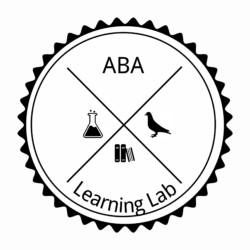James Macon, M.Ed., BCBA
For many of us, we tend to glide through the day on auto-pilot, rarely thinking about the thousands of behaviors we would otherwise have to consciously engage in. It just happens, automatic.
The list is pretty exhaustive, but if you stop to think about it, it’s constant: how you roll out of bed; if and how many times you hit the snooze button; how you shower; how you wash your hair; the way and form you dry off after the shower; if you jump on emails first thing, or if you have a coffee and meditate first; how you drive your car; the routes you take; if you text while you drive; what you read; what you watch; what you eat; when you eat; when you go to sleep; how you go to sleep; and so on, etc…
Turns out we’re hard-wired for efficiency. We can thank our ancestors and operant conditioning for most of this. If we had to stop and expend energy on making all of those decisions, we would be that much less likely to survive, as our attention would be diverted from potential threats. What kind of potential threats you ask? Our ancestors had the constant threat of death all around them. Predatory animals, other tribes, weather with no shelter, sickness, and even a common scratch could lead to death (without proper wound care or antibiotics).
Nowadays, the comforts of modern society have eliminated most instances of these threats. By and large, things aren’t trying to kill us. Nonetheless, we still soldier on in auto-pilot mode through most of the day. Without actual threats, our minds can start looking inward for “threats.” Often, this can take the form of negative self-talk, where we ruminate on self-deprecating topics. Other times, we just end up worrying about all the tasks we didn’t get to finish, and wonder where we’ll find the time.
What’s this have to do with behavior analysis you ask? Well… it’s about behavior, and being more deliberate in what we choose to behave in. And clarifying what we value, and if we engage in behaviors consistent with those values
Our friends in clinical behavior analysis have developed some pretty cool technologies and interventions to help with this. One such intervention is Acceptance and Commitment Therapy, or ACT, an empirically-based intervention that redefines how we look at language and behavior.
In a nutshell, ACT asks, what really matters to you? What do you want to do with your time on this planet, and what sort of person do you want to be? What strengths and qualities will you develop? What are your values? After we’ve answered these questions, we can commit to what behaviors we’re going to engage in to align ourselves with those values.
In his book “ACT Made Simple,” Dr. Russ Harris suggests some areas where we can ask ourselves these questions:
- Work/Education: education, skills development, etc.
- Relationships: spouse, friends, coworkers, etc.
- Personal Growth/Health: exercise, nutrition, etc.
- Leisure: how you play, relax, or enjoy yourself
The premise remains, if I value work/education, what behaviors do I engage in that align with that value? What behaviors say that I’m a good employee, or that I value education? If I value my relationships, what behaviors do I engage in that are consistent with that value? Do I call my friends regularly? Do I spend dedicated time with my spouse?
By understanding what we truly value, we can pinpoint specific, measurable behaviors to engage in that align with our values. We can be deliberate. We can slow down the auto-pilot and decide where and how we want to change, and with what behaviors.


I ask myself each day who do I want to be in this world??? How are my words and actions reflecting that intention?
Excellent prompt to slow down and be deliberate in exploring each tiny behavior to align them with our various goals.
Seems like a pretty fun way to live if you ask me!
Helpful, too, in applying ABA to life in general, which helps deepen understanding, ultimately helping us, our teams, and our clients.
This is just what I needed: a reminder that knowing my values and basing my actions on those values will help me stop this crazy prize seeking behavior that has me so confused. And so distraught. There are too many meditation practices that I want to do and too many books to read and paths to follow that I am just spinning in a circle, unable to actually do any of them very well. Time to stop and take inventory.